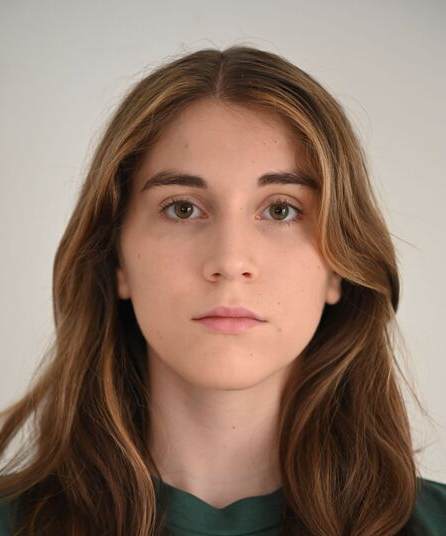Manuel Wimmer

Privatdoz. Mag.rer.soc.oec. Dr.rer.soc.oec.
Manuel Wimmer
- Email: manuel.wimmer@tuwien.ac.at
- Phone: +43-1-58801-18829
- Office: HG0219 (1040 Wien, Favoritenstrasse 11)
- About: UML, Object-oriented Modeling, Domain-specific Modeling, Metamodeling, Model Transformation, Software Engineering, Web Engineering, Model Engineering, Industrial Engineering, Automation Engineering, Multi-disciplinary Engineering
- Orcid:
- Keywords: Model Driven Engineering, Web Engineering, Model Transformation
- Roles: Affiliated
Publications
Debugging Model-to-Model Transformations
 Johannes Schönböck
Johannes Schönböck Manuel Wimmer
Manuel Wimmer Angelika Kusel
Angelika Kusel Werner Retschitzegger
Werner Retschitzegger Wieland Schwinger
Wieland Schwinger
Schönböck, J., Kappel, G., Wimmer, M., Kusel, A., Retschitzegger, W., & Schwinger, W. (2012). Debugging Model-to-Model Transformations. In 2012 19th Asia-Pacific Software Engineering Conference. 19th Asia-Pacific Software Engineering Conference (APSEC 2012), Hong Kong, Non-EU. https://doi.org/10.1109/apsec.2012.56
Generic vs. Language-Specific Model Versioning - Adaptability to the Rescue
 Petra Kaufmann
Petra Kaufmann Philip Langer
Philip Langer Martina Seidl
Martina Seidl Manuel Wimmer
Manuel WimmerKeywords:
Astract: In this paper, we discuss how to make a generic model versioning system language-specific by using various adaptation techniques. In particular, we recap some lessons learned during the AMOR project and outline some open challenges for adaptable model versioning systems.
Kaufmann, P., Langer, P., Seidl, M., Wimmer, M., & Kappel, G. (2012). Generic vs. Language-Specific Model Versioning - Adaptability to the Rescue. In Softwaretechnik- Trends. International Workshop on Comparison and Versioning of Software Models (CVSM 2012), Essen, Germany, EU. Gesellschaft für Informatik. http://hdl.handle.net/20.500.12708/54583
Towards Scenario-Based Testing of UML Diagrams
 Petra Kaufmann
Petra Kaufmann Uwe Egly
Uwe Egly Sebastian Gabmeyer
Sebastian Gabmeyer Martina Seidl
Martina Seidl Hans Tompits
Hans Tompits Magdalena Widl
Magdalena Widl Manuel Wimmer
Manuel Wimmer
Kaufmann, P., Egly, U., Gabmeyer, S., Kappel, G., Seidl, M., Tompits, H., Widl, M., & Wimmer, M. (2012). Towards Scenario-Based Testing of UML Diagrams. In Tests and Proofs (pp. 149–155). Springer. https://doi.org/10.1007/978-3-642-30473-6_12
ATL4pros: introducing native UML profile support into the ATLAS transformation language
 Andrea Randak
Andrea Randak Manuel Wimmer
Manuel WimmerKeywords: ATL, UML profiles, transformation language extension
Astract: The software engineering process has significantly changed over the last decade. Whereas in the past models were only used for communication and brainstorming purposes, this philosophy has shifted drastically. Model-Driven Engineering (MDE) is the keyword that is guiding the current engineering direction. Models are the key artifact and all development steps are aligned to these models. Sophisticated modeling techniques have been invented to ensure a consistent and comprehensive technological basis. The Unified Modeling Language (UML) was introduced by the Object Management Group (OMG) to standardize and support different modeling aspects like structural, behavioral, and architectural models. The huge success of UML is not only due to the versatility of the language but also because of the highly-developed language extension mechanism in form of UML profiles. UML profiles may be defined for tailoring UML to specific domains and technological platforms.
Apart from modeling languages, the technique of model transformation plays a crucial role for the model-driven approach. Model transformations aim at transforming an existing source model into some desired target model. Different model transformation languages were invented that support various kinds of model transformations. One of them is the ATLAS Transformation Language (ATL), which is currently one of the most widely used transformation languages. While modeling languages defined by metamodels are directly supported in an ATL transformation, the use of UML profiles demands for a complex work-around. It would be desirable, however, to simplify the handling of UML profiles in such a way that profiles are, like metamodels, represented as language definitions.
The contribution of this master's thesis is to extend ATL for a native UML profile support. New language constructs are integrated into the abstract and concrete syntax of ATL to ease the use of profile-specific information within a model transformation. Apart from the extension of the ATL syntax, also an operational semantics for the new constructs is defined by translating the extended ATL to standard ATL. The goal of this work is to enrich the ATL language with new language-inherent constructs and keywords. During the implementation phase several technological possibilities as well as limitations were encountered and discussed. This collection of lessons learned can be seen as a guideline for future extensions of ATL, and as a starting point for a critical discussion about the extensibility of ATL.
Randak, A. (2011). ATL4pros: introducing native UML profile support into the ATLAS transformation language [Diploma Thesis, Technische Universität Wien]. reposiTUm. https://resolver.obvsg.at/urn:nbn:at:at-ubtuw:1-59337
A survey on UML-based aspect-oriented design modeling
 Manuel Wimmer
Manuel Wimmer Andrea Schauerhuber
Andrea Schauerhuber Werner Retschitzegger
Werner Retschitzegger Wieland Schwinger
Wieland Schwinger Elizabeth Kapsammer
Elizabeth KapsammerKeywords:
Astract: Aspect-orientation provides a new way of modularization by clearly separating crosscutting concerns from noncrosscutting ones. While aspect-orientation originally has emerged at the programming level, it now stretches also over other development phases. There are, for example, already several proposals for Aspect-Oriented Modeling (AOM), most of them pursuing distinguished goals, providing different concepts as well as notations, and showing various levels of maturity. Consequently, there is an urgent need to provide an in-depth survey, clearly identifying commonalities and differences between current AOM approaches. Existing surveys in this area focus more on comprehensibility with respect to development phases or evaluated approaches rather than on comparability on bases of a detailed evaluation framework.
This article tries to fill this gap focusing on aspect-oriented design modeling. As a prerequisite for an in-depth evaluation, a conceptual reference model is presented as the article's first contribution, centrally capturing the basic design concepts of AOM and their interrelationships in terms of a UML class diagram. Based on this conceptual reference model, an evaluation framework has been designed, resembling the second contribution, by deriving a detailed and well-defined catalogue of evaluation criteria, thereby operationalizing the conceptual reference model. This criteria catalogue is employed together with a running example in order to evaluate a carefully selected set of eight design-level AOM approaches representing the third contribution of the article. This per approach evaluation is complemented with an extensive report on lessons learned, summarizing the approaches' strengths and shortcomings.
Wimmer, M., Schauerhuber, A., Kappel, G., Retschitzegger, W., Schwinger, W., & Kapsammer, E. (2011). A survey on UML-based aspect-oriented design modeling. ACM Computing Surveys, 43(4), 1–33. https://doi.org/10.1145/1978802.1978807
Projects
Multi-Paradigm Modelling for Cyber-Physical Systems (MPM4CPS)
Name: MPM4CPS; Title: Multi-Paradigm Modelling for Cyber-Physical Systems (MPM4CPS); Begins On: 2014-10-01; Ends On: 2019-05-31; Context: European Cooperation in Science and Technology (COST); View Project WebsiteCOSIMO: Collaborative Configuration Systems Integration and Modeling
Name: COSIMO; Title: COSIMO: Collaborative Configuration Systems Integration and Modeling; Begins On: 2014-01-01; Ends On: 2017-05-30; Context: Vienna Business Agency (WAW); View Project WebsiteARTIST: Advanced software-based seRvice provisioning and migraTIon of legacy Software
Name: ARTIST; Title: ARTIST: Advanced software-based seRvice provisioning and migraTIon of legacy Software; Begins On: 2012-10-01; Ends On: 2015-09-30; Context: European Commission; View Project WebsiteTROPIC: A Framework for Model Transformations on Petri Nets in Color
Name: TROPIC; Title: TROPIC: A Framework for Model Transformations on Petri Nets in Color; Begins On: 2009-03-01; Ends On: 2012-08-31; Context: Austrian Science Fund (FWF); View Project WebsiteAMOR: Adaptable Model Versioning
Name: AMOR; Title: AMOR: Adaptable Model Versioning; Begins On: 2009-02-01; Ends On: 2011-09-30; Context: SparxSystems Software GmbH; View Project WebsiteTeam
Business Informatics Group, TU Wien
Professors
Christian Huemer
Ao.Univ.Prof. Mag.rer.soc.oec.Dr.rer.soc.oec.
Dominik Bork
Associate Prof. Dipl.-Wirtsch.Inf.Univ.Dr.rer.pol.
Gerti Kappel
O.Univ.Prof.in Dipl.-Ing.inMag.a Dr.in techn.
Henderik Proper
Univ.Prof. PhDResearchers
Aleksandar Gavric
Univ.Ass. MEng. B.Eng.
Galina Paskaleva
Projektass.in Dipl.-Ing.inDipl.-Ing.in BSc

Marianne Schnellmann
Univ.Ass.in BSc MScMarion Murzek
Senior Lecturer Mag.a rer.soc.oec.Dr.in rer.soc.oec.
Marion Scholz
Senior Lecturer Dipl.-Ing.inMag.a rer.soc.oec.
Miki Zehetner
Univ.Ass. DI Bakk.rer.soc.oec. MScSyed Juned Ali
Univ.Ass. BSc MScStudent-Staff

Florian Fankhauser
Projektass. Dipl.-Ing.Julia Smejkal
BSc






